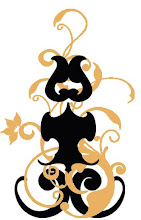Without linking any links or naming any names, let me just say that two things have become clear; 1) quite a number of people seem to agree with me about the state of the Art World today in general, and the state of the Whitney Biennial in particular; and 2) most of those people prefer to remain publically anonymous, or at least publically circumspect, about their opinions.
I don't actually have a problem with that.
One of the biggest fictions that the Art World tries to maintain is that it fosters an egalitarian playing field; that anybody's perspective counts just as much as anybody else's. Therefore we have people seriously stating that my cavalier dismissal of most of the art in this year's Whitney Biennial is mean and wrong and hurtful, because those artists and curators and the people who support them are just as vulnerable as I am.
Hello?
Look, people. The fact is, artists have to eat. The fact is, we are bombarded with information about how many billions of dollars flow through the Art Market every year, at the same time as the vast majority of us are working two jobs, in debt, and worried about sinking into an impoverished old age without health insurance. In concrete terms, the Art World is the opposite of egalitarian. It is a pyramid scheme that depends for its very existence on the economic and aesthetic disempowerment of hundreds of thousands of contenders.
The fact is, there are a very few people in the Art World who hold the money strings, and pissing those people off can get you a one-way ticket to lifelong destitution. These people don't bother countering criticism with criticism; that would be to 'provoke controversy,' which in this modern Art World is synonymous with both artistic validity and big, big bucks.
What they do is just ignore you. Or else they use the word 'decorative.' Damn you to hell, too.
So I do not blame an artist for not wanting to make waves, by stating a decisive opinion about the doings of these economic manipulators of culture. A lot of visual artists are visual artists, in part, because they're not hugely articulate; the validity of their opinion is nothing if it is inelegantly expressed.
I speak up because I have to. I think my life might be easier if I could be more tactful, diplomatic and equivocal about stating my opinions; certainly I'd burn fewer bridges.
But the price for keeping my mouth closed has always seemed too high. Because I care passionately, not about Art in an unconditional, monolithic sense, but about the things that great art has the potential to communicate--inspiration, complexity, profundity, joy, despair, transcendence. I live for that thrill of humility and awe that can be triggered by a chorus by Arvo Pärt, an installation by Lee Bontecou, a ballet by Balanchine or a poem by Stevens.
And playing the political game of circumspection and relativism, for me, would mean selling out my entire reason for being an artist.
Monday, March 10, 2008
Subscribe to:
Post Comments (Atom)



1 comment:
I'm one of those inarticulate artists. I really appreciate your blog because of that. You are able to articulate thoughts and positions that I feel and think so much better than I can.
One of the biggest fictions that the Art World tries to maintain is that it fosters an egalitarian playing field; that anybody's perspective counts just as much as anybody else's.
I couldn't agree more.
Post a Comment